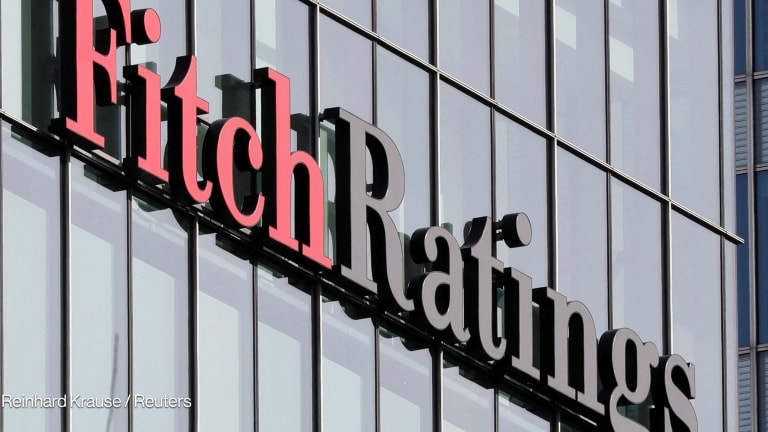
A recent report commissioned by the Group of 20 leading and emerging economies promised that multilateral development banks could release hundreds of billions of dollars in new lending without any negative side effects, but analysts at Fitch Ratings warn that adoption of the recommendations could lead to a credit downgrade.
Two Fitch analysts told Devex that an increase in leverage and risk by the banks could trigger a deterioration in their credit rating.
However, they noted that if shareholder nations put up more guarantees, the banks could lend more without taking a hit from the agency.
“Some MDBs are somewhat naturally more resilient than others, but at least from a structural perspective, they are all vulnerable to a notching adjustment downwards,” said Nick Perry, a Fitch Ratings director, in an interview.
Most major MDBs currently carry an AAA rating, the highest awarded by Fitch, S&P Global Ratings, and Moody’s, while others are rated near the top. The AAA credit rating is prized by many institutions because it allows them to borrow cheaply and pass on the savings to low-income countries that would otherwise face high costs on the open market.
These savings are particularly important when interest rates are high. Currently, central banks worldwide are hiking rates to fight inflation, causing credit costs to rise. Many MDB borrowers already have debt problems and face steep rates on the market.
Sign up for Devex Invested
The must-read weekly newsletter that keeps you up to date with news about business, finance, and the SDGs.
The current economic climate, with low-income countries still suffering from the effects of the COVID-19 pandemic and battered by the shocks from Russia’s invasion of Ukraine, has put a renewed spotlight on the development banks. They can play a key countercyclical role in times of crisis, keeping up the fight against poverty when governments face fiscal pressure.
The report for the G-20 specifically seeks to get ahead of a downgrade by pushing five recommendations — among them is relaxing risk aversion and using more callable capital, which is unpaid shareholders’ funds the banks could use in a crisis, in their metrics — to be enacted as a comprehensive plan.
The report’s authors argue that the full set of recommendations would create a balance, but Perry said such a move would not change Fitch’s ratings methodology.
“The risk of negative ratings pressure, including downgrades, would not be mitigated if the recommendations are put forward as a block or as a broader review,” he said.
MDBs like the World Bank have been accused of being overly conservative with their lending and risk-taking, effectively keeping their balance sheets structured in a way that goes beyond what is needed to preserve the AAA rating. One expert called it a “quadruple A” targeting, meaning that the banks were far more averse to risk than credit ratings agencies require. The Fitch directors did not agree.
“Some MDBs have a more conservative risk management and capital adequacy framework than others, even at the AAA level. But, in most cases, that is offsetting some additional risk that they face or additional leverage they employ,” said Enrique Bernardez, another Fitch director.
“They all face risks,” added Perry.
Only the Asian Development Bank has excess buffers which would allow it to adopt some of the report’s recommendations without damaging its credit rating, the Fitch directors said.
However, Bernardez points out that the banks have shareholders who could give them more support, even without putting up more capital, and that could enable more lending without risking the AAA.
“There has to be a balance between how much capital they're putting at risk and how much support they're getting from shareholders,” he said. “As the G-20 report highlighted, there are also ways to leverage without receiving fresh capital.”
Bernardez pointed to the report’s innovative lending ideas and risk transfer schemes. “We see some upside to lending capacity, while preserving the ratings, but that would be dependent on the structure and support leading to a preservation of capital ratios above certain thresholds,” he said.
If the shareholders are willing to guarantee portions of the risk on the banks’ balance sheets that would help reduce concerns over risk.
Chris Humphrey, one of the report’s authors and senior research associate at the Overseas Development Institute, pushed back on the Fitch warnings.
“MDBs, shareholders, and other stakeholders need time and space to reflect on the report and think about how to best make use of MDB capital,” he said, adding that Fitch’s comments were “certainly not helpful in that.”
More broadly, he criticized the ratings agency’s methodology, calling it a “moving target” that has created uncertainty. He argued that the MDBs preferred creditor status and callable capital gives them unique strengths which were not reflected in Fitch’s review.









